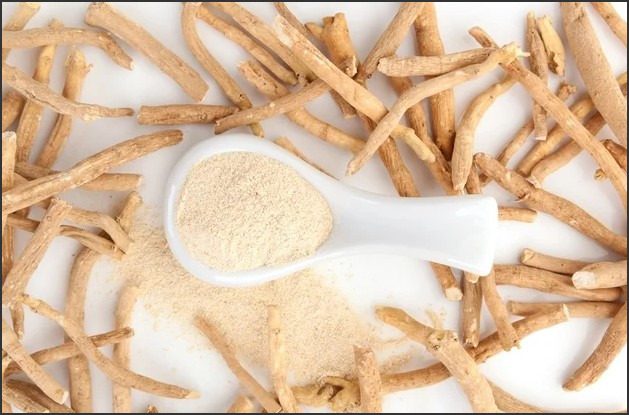
In today’s fast-paced world, sleep problems have become increasingly common. Many individuals struggle with falling asleep, staying asleep, or achieving restful, restorative sleep. While prescription medications are available, they often come with side effects or risk of dependency. Fortunately, there are safe and effective alternatives rooted in traditional medicine. Herbal remedies for sleep have gained attention for their ability to promote relaxation, reduce anxiety, and improve overall sleep quality. This article explores natural sleep aids, their benefits, and practical ways to incorporate them into your nightly routine.
Understanding Sleep and Its Importance
Sleep is a vital physiological process that affects nearly every aspect of health. Quality sleep supports cognitive function, emotional regulation, immune system strength, and cardiovascular health. Chronic sleep deprivation has been linked to a higher risk of obesity, diabetes, hypertension, and mental health disorders. Understanding the mechanisms that regulate sleep is key to addressing sleep disturbances.
How Sleep Works
Sleep consists of multiple stages, including rapid eye movement (REM) and non-REM sleep. These stages play distinct roles: non-REM sleep is essential for physical restoration and growth, while REM sleep supports cognitive processes such as memory consolidation and learning. Disruptions in these cycles can lead to daytime fatigue, decreased concentration, and mood disturbances.
Stress, poor sleep hygiene, environmental factors, and underlying medical conditions are common contributors to sleep difficulties. While lifestyle modifications—such as reducing screen time before bed, maintaining a consistent sleep schedule, and creating a relaxing environment—are crucial, incorporating herbal remedies for sleep can further support healthy sleep patterns.
Popular Herbal Remedies for Sleep
Several herbs have demonstrated potential to improve sleep quality by promoting relaxation, reducing anxiety, or supporting the natural sleep-wake cycle.
1. Valerian Root
Valerian root is one of the most well-studied herbal sleep aids. It is believed to increase levels of gamma-aminobutyric acid (GABA) in the brain, a neurotransmitter that promotes relaxation and reduces nerve activity. Research suggests that valerian can help reduce the time it takes to fall asleep and improve overall sleep quality without causing morning grogginess.
2. Chamomile
Chamomile is widely known for its calming properties. It contains antioxidants such as apigenin, which bind to receptors in the brain to decrease anxiety and initiate sleep. Chamomile is commonly consumed as a tea before bedtime and is considered safe for most people, though allergic reactions may occur in individuals sensitive to related plants such as ragweed.
3. Lavender
Lavender is frequently used in aromatherapy for its soothing effects. Inhaling lavender essential oil or adding it to a diffuser can promote relaxation and improve sleep quality. Some studies have also found that lavender can reduce anxiety, making it particularly useful for individuals whose sleep disturbances are stress-related.
4. Passionflower
Passionflower has been used traditionally to reduce anxiety and insomnia. It may help increase GABA activity in the brain, similar to valerian root. Consuming passionflower as a tea or supplement can enhance sleep duration and overall restfulness.
5. Lemon Balm
Lemon balm is a member of the mint family and has been used for centuries to calm the nervous system. It can reduce stress, improve mood, and promote sleep when taken alone or in combination with other calming herbs such as valerian.
How to Use Herbal Remedies Safely
While herbal remedies for sleep are generally considered safe, it is important to use them responsibly to avoid side effects or interactions with medications.
Guidelines for Safe Use
- Consult a healthcare provider: If you are pregnant, nursing, or taking medications, consult a doctor or pharmacist before starting herbal supplements.
- Start with small doses: Begin with a low dose to assess tolerance and effectiveness.
- Use high-quality products: Look for reputable brands to ensure purity and potency.
- Combine with good sleep hygiene: Herbal remedies are most effective when paired with practices such as limiting caffeine, reducing screen time before bed, and maintaining a consistent sleep schedule.
Practical Tips for Incorporation
- Brew a cup of chamomile or lemon balm tea 30–60 minutes before bedtime.
- Diffuse lavender essential oil in the bedroom to create a calming environment.
- Consider valerian root or passionflower supplements if mild teas are insufficient.
- Maintain a relaxing bedtime routine that signals your body it is time to sleep.
Incorporating herbal remedies for sleep into your nightly routine can be a safe, natural, and effective way to improve sleep quality and promote relaxation. Herbs such as valerian root, chamomile, lavender, passionflower, and lemon balm have been shown to reduce anxiety, improve sleep onset, and enhance overall restfulness. While these natural solutions are not a replacement for medical treatment in severe cases, they offer a gentle alternative for individuals seeking better rest without relying on prescription medications. By understanding their benefits, using them responsibly, and combining them with good sleep habits, you can create an environment that supports restorative sleep and overall well-being.


